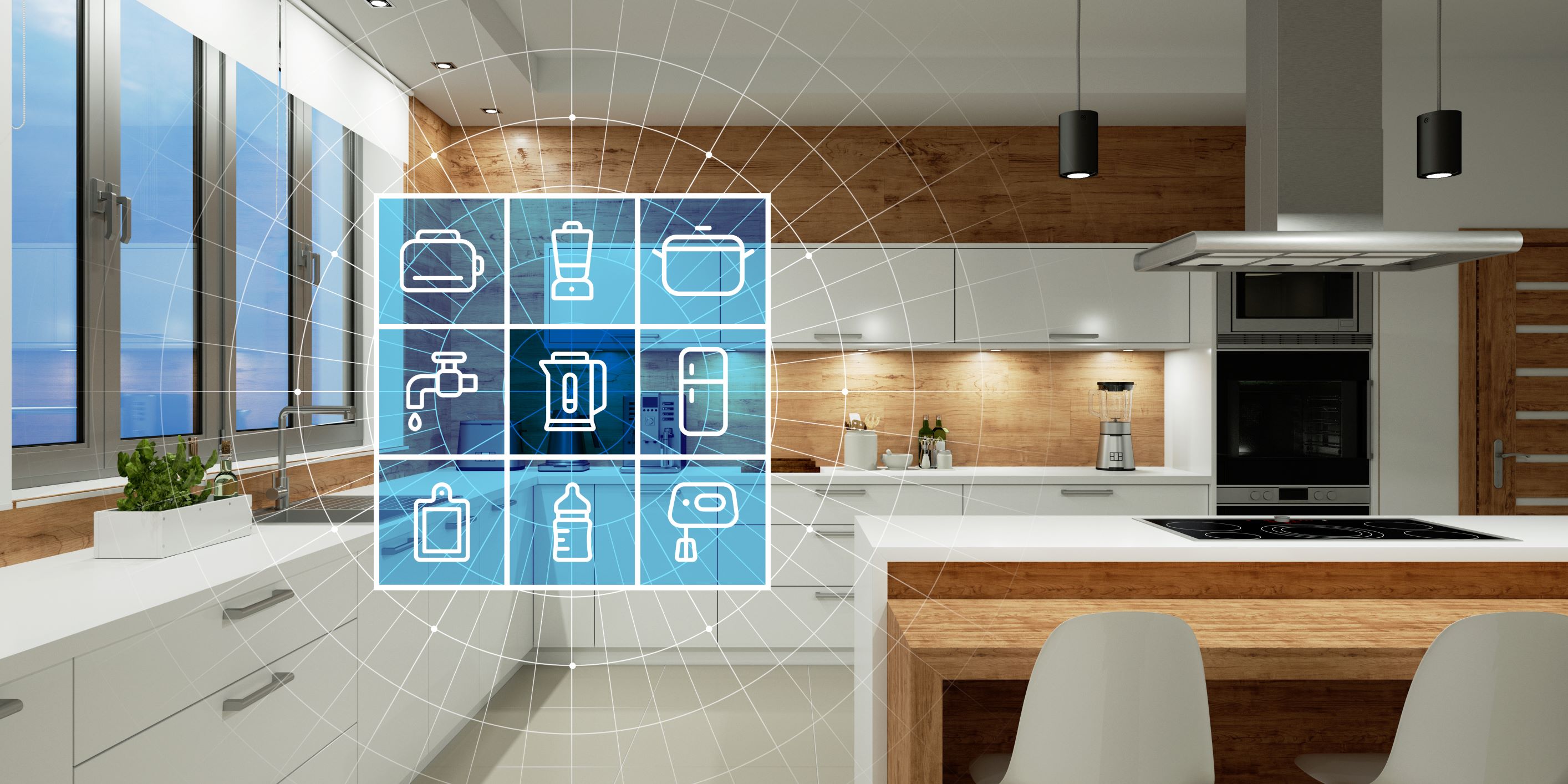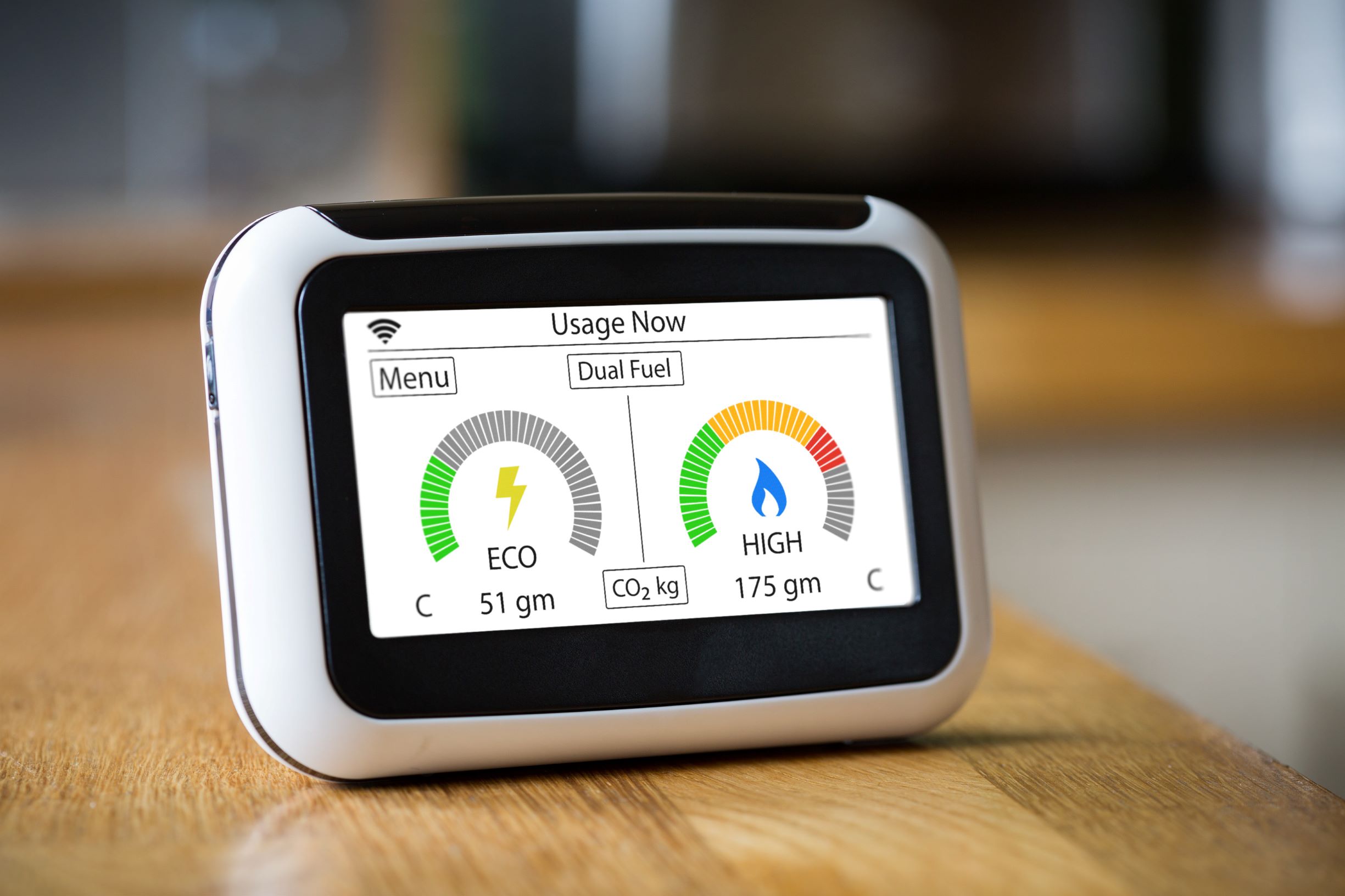The New Smart Space
IoT Trends and Tech in Commercial Real Estate

Back during the turn of the 21st-century, businesses and commercial real estate professionals alike speculated about the concept of a “smart space,” one that was fueled by innovative technology — now, it has become a reality.
Offices and other workspaces are rapidly being upgraded by smart technology that helps increase the efficiency of functions, boost the productivity of employees, and minimize costs. This is made possible through Internet of Things — a computing concept that connects physical objects with the Internet and allows networks to be formed where devices communicate with each other. The applications of IoT technologies for business-focused properties are substantial and consequently, are deeply impacting commercial real estate.
Below we explore the top IoT trends that are affecting commercial real estate and new tech hitting the market to keep on your watch-list:
Increased Energy Efficiency
A top trend in IoT for commercial real estate is the focus on increasing the energy efficiency of utilities in properties. IoT is completely revolutionizing energy consumption in workspaces and becoming a popular implementation with utility companies who also reap the benefits of this change. By 2020 the size of IoT in the utility market is predicted to reach $12 billion.
A substantial part of IoT’s success in commercial real estate is due to its ability to enable in-house units with sensors and monitoring abilities that make it possible to create more energy-efficient spaces. This is through the devices recognizing patterns and learning the owner’s movements, preferences, and habits. As well, occupants are provided more manual control over utilities with voice-command abilities and apps that allow for remote usage.
IoT mainly impacts these two utilities:
1. HVAC
IoT provides heating, ventilation, and air conditioning (HVAC) systems with the ability to make estimations and decisions on their own. This includes adjusting temperatures and ventilation on a daily, or hourly, basis depending on external factors such as outdoor temperatures, inside needs and the patterns of the occupants it can analyze. An additional benefit for properties is that this can be specific room to room.
For example, IoT knows when no one is in a room and can turn down the heating or the A/C with the goal of preventing energy waste as well as lowering the monthly utility charges. This application of IoT in HVAC is a substantial asset to look out for when renting or selling commercial real estate properties.
2. Lighting
Commercial real estate can continue to help businesses with conserving energy and lowering of costs IoT-driven smart lights. Instead of having all the lights on in the entire building or floor, intelligent lighting systems only keep the lights on in spaces where employees are working. The company, Atlas Global Solutions, even found that with the use of intelligent LED lighting systems, they could reduce energy costs by 75%.
 Smart Meters
Smart Meters
Smart meters are a popular IoT technology with both property owners and utility companies. They are devices that give ongoing information on the property’s energy usage and track usage for the owners. For utility company purposes, smart meters allow them to manage the bi-directional flows of energy from power grids and make improvements to renewable energy projects from the data smart meters provide. As well, analysis solutions in smart meters can monitor power usage and provide suggestions for adjustments based on data.
Predictive Maintenance
How beneficial would it be if property owners could be made aware of problems before they occurred? IoT predictive analytics makes this possible and has become a huge trend in commercial real estate.
In expansive business spaces, maintenance issues are inevitable. IoT-enabled sensors and energy monitoring not only flag issues but also can automate and resolve maintenance malfunctions. This convenience creates a selling advantage for commercial real estate property owners and agents.
Higher Air Quality
A study revealed that employees who work in environments with higher air quality achieve cognitive scores that are 60% higher than those that don’t. With IoT, sensors can monitor the air for CO2 and NOx and, depending on the levels, can initiate necessary actions to filter the air and circulate a higher quality of air.
![]() Beacon Technology
Beacon Technology
Beacon technology is another trending use of IoT in commercial real estate. Beacons are Bluetooth devices that can be placed inside a property and transmit all the information about it via the Internet. This way, a prospective buyer can have all the details delivered right to their phone before even physically visiting the property. This includes square footage, price, photos, and even a 360-degree virtual tour.
Pre-Sale Property Insights
Similar to the way IoT can perform predictive analytics on maintenance issues, it can also provide commercial real estate agents with an in-depth predictive analysis of the whole property. This can serve as a “report card” of the property’s value and agents can leverage the advantages made present to improve sales.
As well, rather than physically visiting the property multiple times to assess the conditions, prospective buyers can use these accessible and reliable analytics to make confident decisions.
The Smart Conclusion
In response to the introduction of Internet of Things technologies into commercial real estate properties, the market is evolving rapidly. Businesses and buyers are looking for smart workspaces that are elevated with technology that helps increase efficiency and lower costs. To meet this demand, commercial real estate agents must consider what IoT capabilities their properties have to offer the market.
